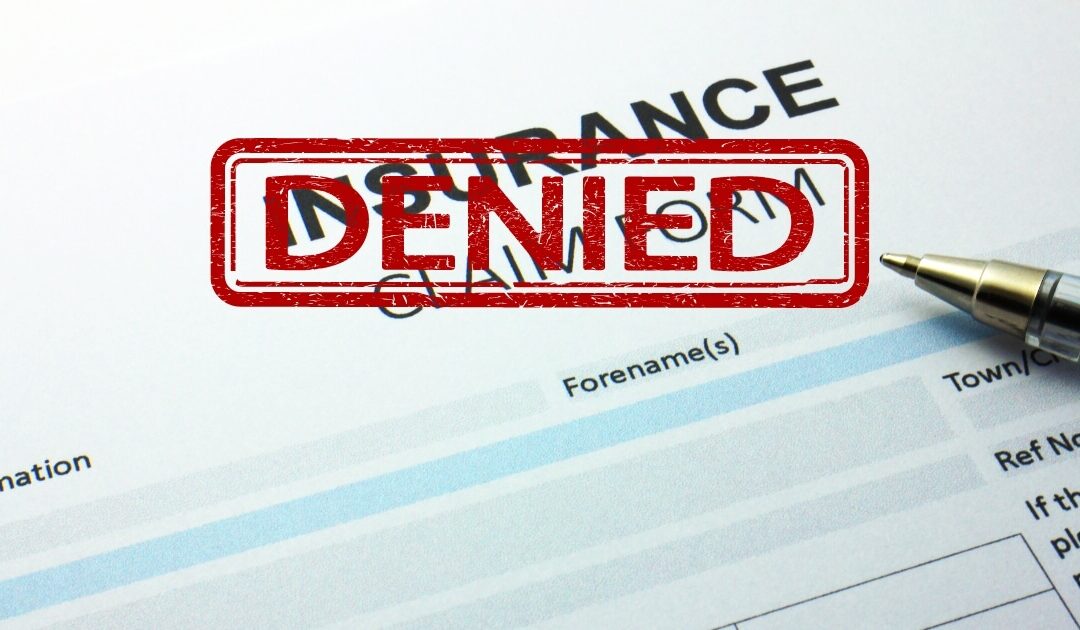When your home suffers damage, you trust your homeowners insurance to provide the financial support needed to repair and recover. Unfortunately, insurance companies don’t always uphold their promises. Claim denials or underpayments are common and can leave homeowners struggling to cover expenses.
If your claim has been denied or undervalued, it’s essential to know your rights and how to dispute the decision effectively. This guide will walk you through the steps to challenge an unfair claim and secure the compensation you deserve.
Understanding Why Claims Are Denied or Underpaid
Insurance companies are for-profit businesses, and their goal is often to minimize payouts. While some claim denials or underpayments may be valid, others are unjustified. Understanding the common reasons behind these decisions can help you identify the next steps.
Common Reasons for Claim Denials
- Lack of Documentation: Insufficient evidence of damage or incomplete paperwork.
- Policy Exclusions: Damage caused by events not covered under your policy, such as floods or earthquakes.
- Missed Deadlines: Filing the claim too late or not meeting other time-sensitive requirements.
- Failure to Mitigate Damage: Not taking immediate action to prevent further damage after an incident.
- Disputed Cause of Damage: The insurer claims the damage is unrelated to the covered event.
Common Reasons for Underpaid Claims
- Low Damage Estimates: The insurer’s adjuster undervalues the extent or cost of repairs.
- Partial Coverage: Some aspects of the damage are deemed outside the policy’s scope.
- Depreciation: Insurers may reduce payouts based on the age or condition of damaged items.
- Improper Deductible Application: Deductibles may be applied incorrectly, reducing the payout.
Steps to Dispute a Denied or Underpaid Claim
Challenging a denial or underpayment may seem daunting, but with the right approach, you can fight back effectively. Here are the steps to take:
1. Understand Your Policy
Start by reviewing your insurance policy in detail. Look for:
- Coverage limits
- Exclusions
- Deadlines
- Obligations (e.g., reporting requirements)
Understanding your policy terms will help you determine if the denial or underpayment was justified.
2. Request a Written Explanation
Ask your insurance company to provide a detailed explanation for their decision in writing. This document should outline the reasons for denial or underpayment and reference specific policy clauses.
3. Review Your Evidence
Ensure you have thorough documentation of the damage and associated costs. This may include:
- Photographs or videos of the damage
- Receipts for temporary repairs or mitigation efforts
- Contractor repair estimates
- Communication records with the insurance company
4. Obtain a Second Opinion
Consider hiring an independent contractor or public adjuster to provide an unbiased assessment of the damage and repair costs. Their estimate can serve as valuable evidence in your dispute.
5. File an Appeal
Most insurance companies have an appeals process for denied or underpaid claims. Submit your appeal with:
- A clear explanation of why you believe the decision was incorrect
- Supporting documentation (e.g., independent estimates, photos, receipts)
- A copy of the insurer’s written explanation
6. Seek Legal Guidance
If your appeal is unsuccessful or if the insurer is acting in bad faith, consulting an experienced attorney can make a significant difference. An attorney can:
- Negotiate with the insurer on your behalf
- Ensure your rights are protected under Florida law
- Represent you in court if necessary
When to Consider Legal Action
If an insurance company denies your claim without justification, delays processing, or offers an unreasonably low settlement, it may be acting in bad faith. Florida law protects homeowners from bad faith practices, and you have the right to pursue legal action if your insurer fails to act fairly.
Signs of Bad Faith
- Unexplained claim delays
- Misrepresentation of policy terms
- Failure to provide a written explanation for denial
- Offering unreasonably low settlements without justification
Tips for Preventing Claim Issues
- Document Thoroughly: Take photos and keep receipts for any expenses related to the damage.
- File Promptly: Submit your claim as soon as possible to meet deadlines.
- Follow Up: Stay proactive by regularly checking on the status of your claim.
- Know Your Policy: Understand your coverage before damage occurs to avoid surprises.
How ECD Law Can Help You Fight Back
If you’ve been left struggling with a denied or underpaid homeowners insurance claim, ECD Law is here to help. Our Sarasota-based team has experience advocating for homeowners and ensuring insurance companies fulfill their obligations. Here’s how we can assist:
- Policy Review: We’ll analyze your policy and the insurer’s justification for their decision.
- Evidence Collection: Our team will gather the necessary documentation to strengthen your case.
- Negotiation: We’ll communicate with the insurer to seek a fair resolution.
- Litigation: If the insurer refuses to act in good faith, we’re prepared to represent you in court.
Take Action Today
You don’t have to navigate the claims process alone. At ECD Law, we’re committed to ensuring homeowners receive the compensation they’re entitled to. Whether you’re disputing a denial or an underpayment, we’ll guide you every step of the way. Call us today at 941-366-8888 or complete our online contact form to schedule a free consultation. Let us fight for your rights and help you recover the compensation you deserve.

